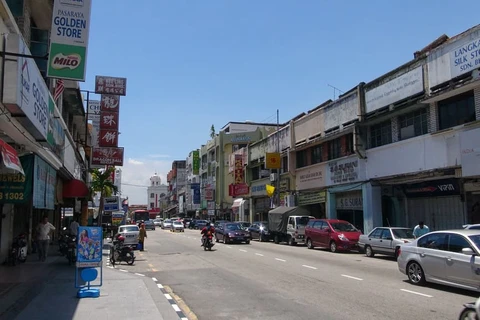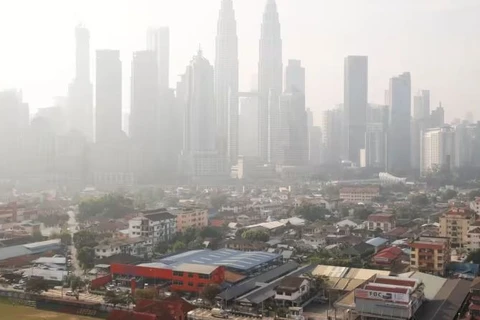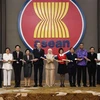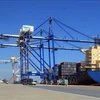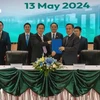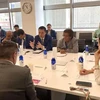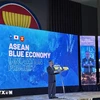Kuala Lumpur (VNA) – Malaysia’s Investment, Trade and Industry Minister Tengku Zafrul Aziz has stressed that supporting Malaysian small and medium-sized enterprises (SMEs) is vital as the global supply chains are shifting to the Association of Southeast Asian Nations (ASEAN).
The minister said ASEAN is set to become not just the world's factory but also a significant consumer base.
The 10 ASEAN nations are already home to more than 678 million people, with a combined Gross Domestic Product (GDP) of about 3.7 trillion USD last year, he said, adding that as a bloc, ASEAN is the fifth-largest economy in the world, with a middle class of roughly 350 million, representing 300 billion USD of disposable income.
Last year, Tengku Zafrul said that when the global Foreign Direct Investment (FDI) fell by 12%, FDI into ASEAN went up by 5%, and its share of global FDI rose to an all-time high of 17%.
According to the official, SMEs' survival in local supply chains could help them to capitalise on not only ASEAN's growing middle class but also shifting supply chains to and FDI flowing into this region.
This regional economic integration is also a goal that is also espoused by the Madani Economy framework, he said.
Tengku Zafrul added that the Malaysian government acknowledged the significant influence of external factors on businesses and recognised that even well-managed companies could suffer setbacks from circumstances beyond their control, especially in the ever-evolving economic landscape.
Sudden shifts in market conditions, unforeseen disruptions, or internal struggles can push promising companies to the brink of failure and have far-reaching consequences for a production's entire supply chain, encompassing suppliers, customers, employees and possibly the surrounding communities, he said./.
The minister said ASEAN is set to become not just the world's factory but also a significant consumer base.
The 10 ASEAN nations are already home to more than 678 million people, with a combined Gross Domestic Product (GDP) of about 3.7 trillion USD last year, he said, adding that as a bloc, ASEAN is the fifth-largest economy in the world, with a middle class of roughly 350 million, representing 300 billion USD of disposable income.
Last year, Tengku Zafrul said that when the global Foreign Direct Investment (FDI) fell by 12%, FDI into ASEAN went up by 5%, and its share of global FDI rose to an all-time high of 17%.
According to the official, SMEs' survival in local supply chains could help them to capitalise on not only ASEAN's growing middle class but also shifting supply chains to and FDI flowing into this region.
This regional economic integration is also a goal that is also espoused by the Madani Economy framework, he said.
Tengku Zafrul added that the Malaysian government acknowledged the significant influence of external factors on businesses and recognised that even well-managed companies could suffer setbacks from circumstances beyond their control, especially in the ever-evolving economic landscape.
Sudden shifts in market conditions, unforeseen disruptions, or internal struggles can push promising companies to the brink of failure and have far-reaching consequences for a production's entire supply chain, encompassing suppliers, customers, employees and possibly the surrounding communities, he said./.
VNA

